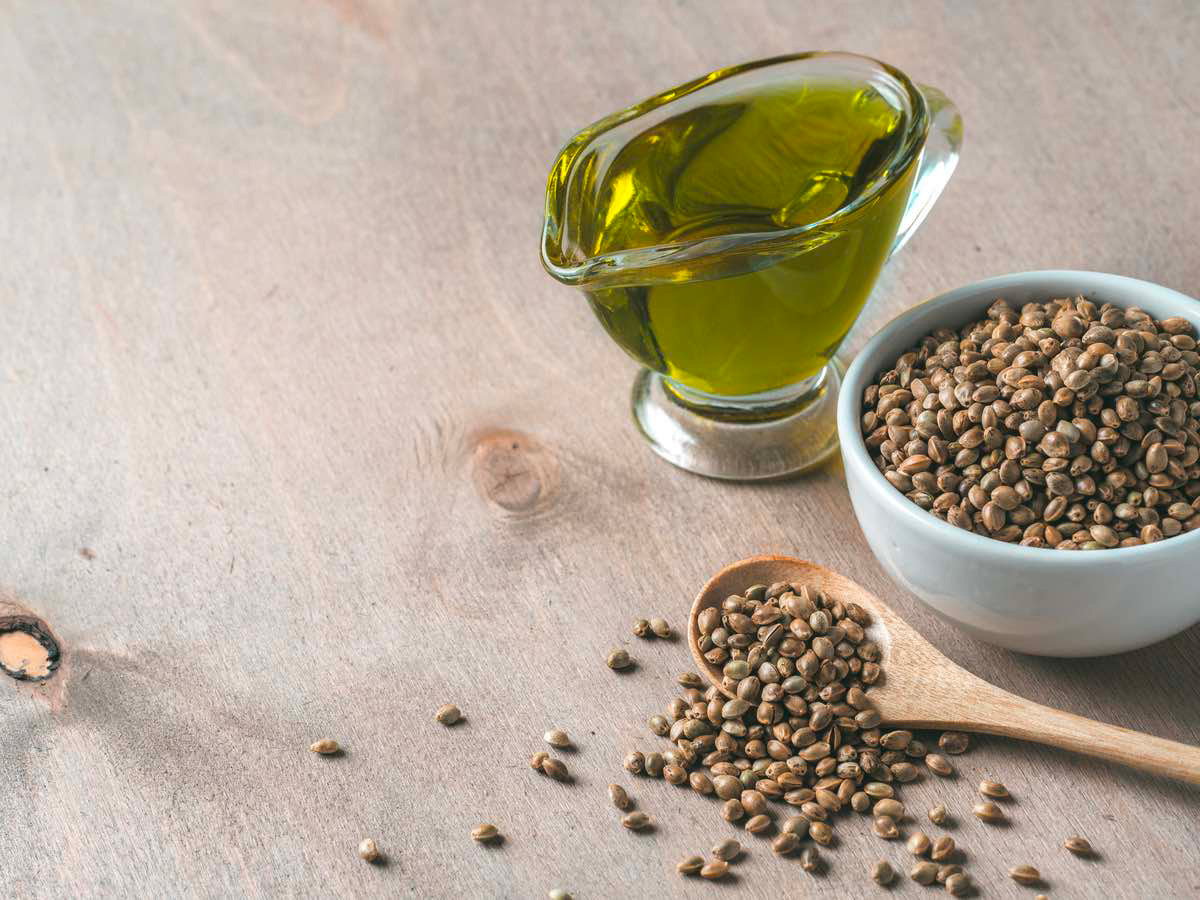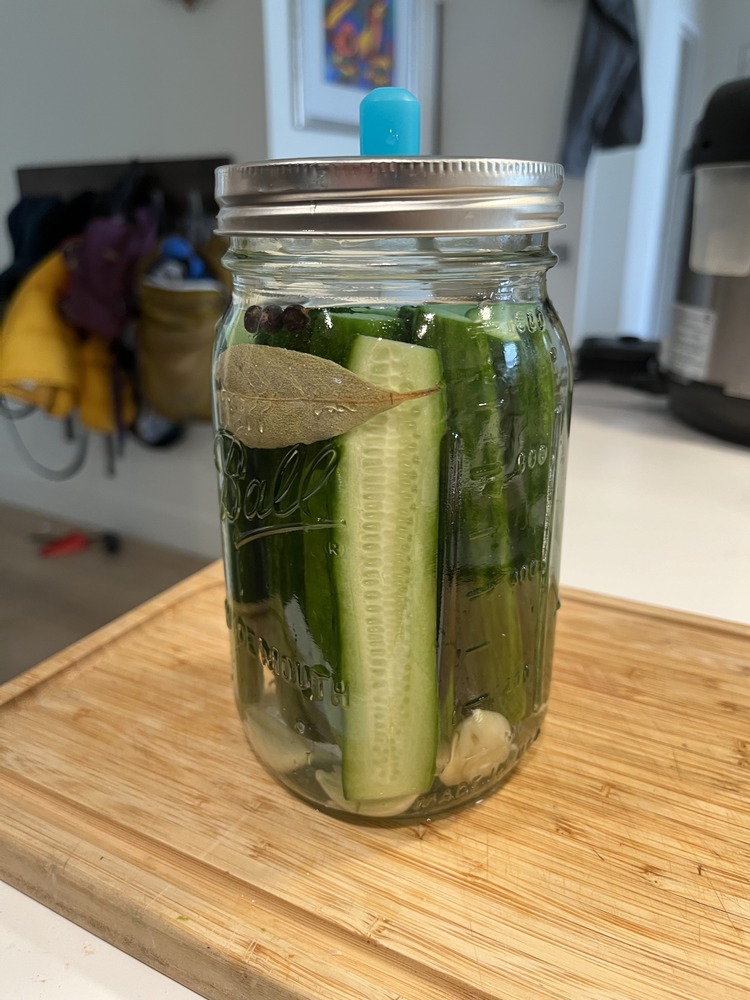Hemp seed oil is a powerful tool for nourishing dry skin and reducing inflammation. It is rich in essential fatty acids which are key to its benefits and why it is also very useful for people with atopic dermatitis.
As an acupuncture doctor, I have to wash my hands and use hand sanitizer all day. I personally have found eating hemp seed oil really helps to reduce my dry hands. I also find hemp seed oil and many sources of omega-3 fatty acids in the diet of my patients with atopic dermatitis.
Hemp seeds, called Huo Ma Ren in Chinese, and its oil have been used in herbal medicine, medicinal foods, as well as in topical applications within Chinese herbal medicine. It is traditionally used for moistening the skin and can also help treat constipation. This herb is considered to be sweet and neutral in temperature so it is going to be easily used by many people will not cause too much heat or cooling.
In this blog post, I will explore the benefits of hemp seed oil for the skin, how it helps people with eczema, and also how to use it.
What is Hemp Seed Oil?
Hemp seed oil is a nutritious and versatile oil extracted from the seeds of the hemp plant (Cannabis sativa). It is known for its nutritional content, such as essential fatty acids, vitamins, and minerals. I like it as a food and in some topical skincare products because of its uniquely balanced fatty acid profile. Some varieties have more that 80% oil in their seeds.
Hemp seed oil is primarily extracted using a process called cold pressing. Hemp seed oil is valued for its nutritional content and should not be confused with CBD oil or cannabis oil, which contain more significant concentrations of cannabinoids like CBD and THC. Hemp seed oil contains only trace amounts, if any, of CBD (cannabidiol) and THC (tetrahydrocannabinol). These cannabinoids are primarily found in the leaves and flowers of the hemp plant rather than in the seeds.
Hemp seed oil will only have CBD or THC if the manufacturer combines this on purpose. The culinary oil does not.
Beneficial Fatty Acid Combination
Hemp seed oil contains a high concentration of GLA, which is an omega 6 fatty acid, in a uniquly balanced ratio of omega 3 to omega 6 fatty acids which is not commonly found in other plant oils. This provides the antiinflammtory benefits of the GLA with preventing any inflammation which can come from too many Omega 6 fatty acids in your diet.
The fatty acids found in hemp seed oil can help to soothe inflamed skin, prevent moisture loss, and help to regulate the amount of oil produced in your body.
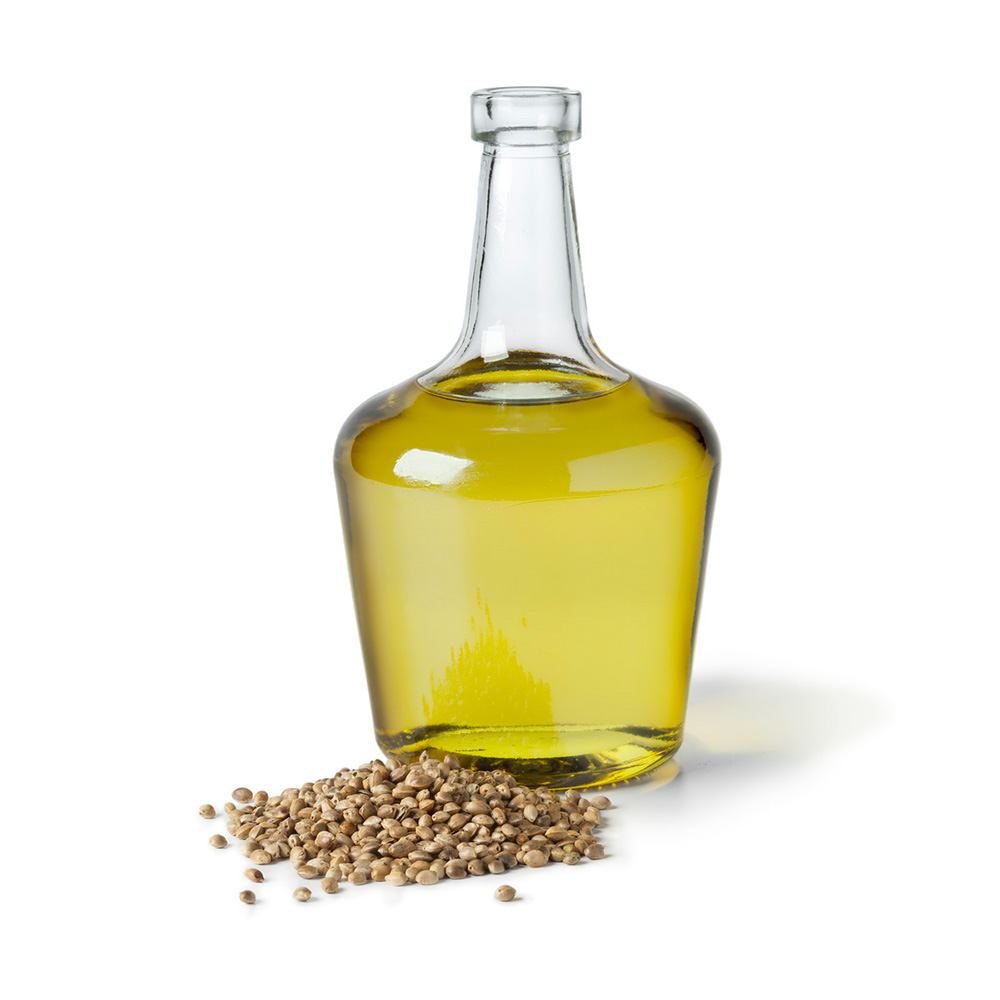
The concentration of Omega-6 fatty acids in hemp seed oild are primariliy linoleic acid (LA) and gamma-linolenic acid (GLA). The concentration of LA in hemp seeds typically ranges from 50-60% of the total fatty acid content, while GLA is present in lower amounts, about 2-4%.
Hemp seeds also contain a significant amount of omega-3 fatty acids, primarily in the form of alpha-linolenic acid (ALA). The concentration of ALA in hemp seeds usually ranges from 15-25% of the total fatty acid content. In addition to the essential fatty acids mentioned above, hemp seeds also contain small amounts of other polyunsaturated fatty acids, such as stearidonic acid (SDA), an omega-3 fatty acid, as well as monounsaturated fatty acids like oleic acid, an omega-9 fatty acid.
The ratio of omega-6 to omega-3 fatty acids in hemp seeds is approximately 3:1, which is considered an ideal balance for promoting optimal health, skin barrier function, and a healthy inflammatory response.
Benefits for Your Skin
- Moisturizes: Hemp seed oil helps the skin stay hydrated by enriching the skin barrier function. This is especially beneficial for people with dry, itchy, and flaky skin, which are common symptoms of atopic dermatitis.
- Strengthens the skin barrier: Hemp seed oil is rich in essential fatty acids like omega-3 and omega-6, particularly GLA, which play a crucial role in maintaining and repairing your skin’s barrier function. A strong skin barrier helps protect your skin from environmental stressors, irritants, and bacteria while keeping it hydrated and resilient.
- Reduces inflammation: Thanks to its anti-inflammatory properties, hemp seed oil can help soothe your skin and reduce inflammation.
- Non-comedogenic: Hemp seed oil is non-comedogenic, which means it won’t clog pores when used topically. This makes it an ideal ingredient for people with oily or acne-prone skin.
What is Gamma Linoleic Acid?
Let’s dive deep into Gamma-linolenic acid (GLA) to see why it is so important for your skin health. GLA is a type of omega-6 fatty acid. GLA is derived from linoleic acid. It is found in a variety of plant-based oils, such as hemp seed oil, evening primrose oil, borage oil, and black currant seed oil.
GLA plays a crucial role in several physiological processes, including the regulation of inflammation, cell growth, and the maintenance of a healthy skin barrier.
The skin barrier is the outermost layer of the skin that protects us from environmental stressors, pathogens, and water loss. The skin barrier is primarily composed of lipids (fats) and specialized skin cells called keratinocytes.
GLA is involved in the skin barrier function by aiding in production of ceramides, production of skin cells, as well as reducing inflammation. Ceramides help maintain the skin’s integrity, hydration, and elasticity by forming a protective barrier that prevents water loss and the entry of harmful substances.
By contributing to the production of ceramides and reducing inflammation, GLA helps maintain skin hydration. Adequate hydration is crucial for maintaining the skin barrier function and preventing dry, flaky, and irritated skin.
While gamma-linolenic acid (GLA) offers potential health benefits, consuming too much GLA without a proper balance of omega-3 fatty acids may lead to increased inflammation and even an Impaired immune function. This is because excess GLA is converted to a fatty acid called arachadonic acid which is proinflamtory. The way to prevent this from happening is by consuming the GLA with the proper amount of Omega-3 fatty acids as this will block the conversition of GLA to AA, keeping it in the proper anti-inflammtory state.
The ratio of omega-6 to omega-3 fatty acids in hemp seeds ranges from about 2:1 to 3:1, which is considered a healthy balance. This balance is what preserves the hemp seed oil benefits for the skin.
This ratio also matches the fatty acid profile of black seed oil, but not with borage and evening primrose oils. That is why it is important when consuming GLA to pay attention to the fatty acid balance.
Eczema, the Skin Barrier, and GLA
Atopic dermatitis, also known as eczema, is a chronic inflammatory skin condition characterized by red, itchy, and dry patches of skin. One of the key factors in atopic dermatitis is a damaged or compromised skin barrier.
The skin barrier plays a crucial role in protecting the skin from external irritants, allergens, and pathogens, as well as preventing water loss. A healthy skin barrier is composed of a well-organized structure of lipids, proteins, and cells. In atopic dermatitis, the skin barrier function is impaired due to a combination of factors, including a reduction in the production of essential lipids and proteins, and increased skin inflammation.
As we discussed, Gamma-linolenic acid (GLA) is a key component in the formation and maintenance of the skin barrier. However, people with atopic dermatitis may have a reduced ability to produce GLA due to an inefficient conversion of linoleic acid (LA), an essential omega-6 fatty acid, into GLA. This reduced GLA production is primarily due to a deficiency or decreased activity of the delta-6-desaturase (D6D) enzyme.
This is why eating more GLA in directly may help eczema. One study showed that adding hemp seed oil into your diet can improve skin hydration and reduce symptoms of atopic dermatitis. In addition to Chinese medicine for eczema, one potential strategy for managing atopic eczema is to add hemp seed oil to your diet.
Best Ways to Eat Hemp Seeds
Hemp seed oil has a mild, nutty flavor and can be used in various ways. It has a low smoke point so it cannot be used for high heat cooking unless it is mixed with another oil. However, Adding it to avocado oil at 10% allows you to cook with hemp seed and the hemp seed oil even retains the composition of omega-3.
Here are some suggestions for how to use hemp seed oil in your daily meals:
- Salad dressings: Mix hemp seed oil with vinegar or lemon juice, and add your favorite herbs and spices to create a flavorful and healthy salad dressing. I eat a salad with sardines, hemp seed oil a few times a week for a filling and healthy lumch.
- Drizzle over vegetables: Use hemp seed oil as a finishing touch on steamed or roasted vegetables to enhance their flavor and add healthy fats.
- Smoothies: Hemp seed oil or whole hemp seeds can be added to smoothies for an extra nutrient boost. My son Harry loves hemp and flax seed smoothies which that work to control his eczema.
- Dips and sauces: Incorporate hemp seed oil into your homemade dips, spreads, and sauces, such as hummus, pesto, or guacamole, to increase their nutritional content.
- Pasta and grain dishes: Drizzle hemp seed oil over pasta, rice, or other grain dishes before serving for added flavor and nutrients.
- Cold soups: Use hemp seed oil in cold soup recipes, like gazpacho, for a refreshing and nutritious twist.
Remember that hemp seed oil is sensitive to heat and light, so it is best to store it in a cool, dark place, like your refrigerator, to preserve its quality and nutritional value. Additionally, due to its low smoke point, hemp seed oil is not suitable for frying or other high-temperature cooking methods when used alone. It is possible to cook with hemp seed oil when it is combined with avocado oil at 10%.
Eat it with other Sources of Omega 3
Combining omega 3 fatty acids with GLA have the most benefit for repairing the skin and enhancing the skin barrier. I find this is helpful for anyone with dry skin or eczema. Other sources ofOmega-3 fatty acids includ fatty fish, such as salmon, tuna, and sardines, as well as in plant sources like flaxseed, chia seeds, macadamia nuts, and walnuts.
My favorite recommendations are my salad with sardines and hemp seed oil or Harry’s favorite smoothie.
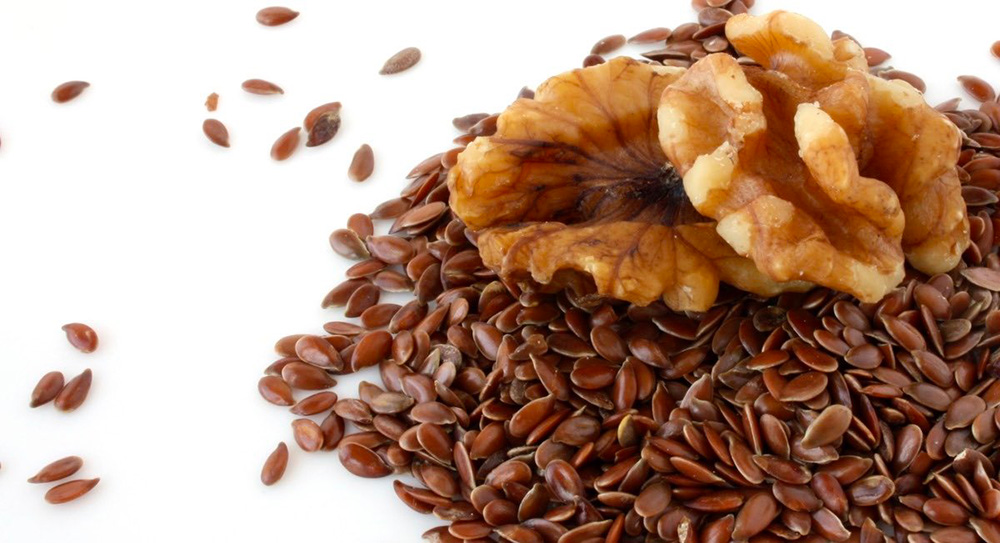
Topical Use of Hemp Seed Oil
Hemp seed oil can be used topically to soothe and moisturize dry skin and may provide relief for eczema symptoms due to its nourishing fatty acid profile and anti-inflammatory properties. It is also non-comedogenic so it will not clog your pores.

It is always important to test a small amount of the oil on your skin to see how your skin will react. To do this, apply a small amount of oil to a discreet area, like the inside of your wrist or elbow, and wait for 24 hours to see if any irritation or redness occurs.
There are lots of great products with hemp seed oil, but you can also do your own DIY application.
Hemp seed oil is non-comedogenic, so it won’t clog pores. Its unique texture helps to lubricate the skin and is easily absorbed.While, the oil can be applied directly to the skin, I like it mixed with other oils. My favorite is mixing it with coconut oil and jojoba oil.
You can also mix hemp seed oil with your favorite fragrance-free moisturizer or cream to create a more nourishing and hydrating blend. Apply this mixture to your skin as you normally would, focusing on dry or affected areas.
Harry’s favorite smoothie
My son Harry has mild eczema on his face. For the last year, we have managed it mostly with his favorite smoothie that combines hemp seeds and flax seeds. He drinks it at least twice a week and his skin has been fine. His case is certainly mild, but it is remarkable the only thing we need to do is give him this wonderful smoothie.
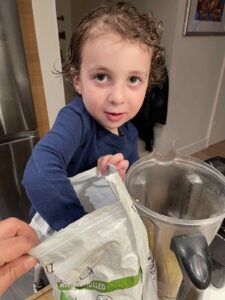
The recipe is very simple and versatile. You can swap out most of the fruits for other things you have in the house.
Place the following ingredients in a blender.
- 2 frozen bananas
- 1 cup frozen pineapple
- 1 apple
- 4 dates with the pits removed
- 3 tablespoons hemp seeds
- 3 tablespoons flax seeds
- 1 cup ice
- 1.5 cups water
- pinch of salt.
Blend it up and enjoy!
This makes 6 servings
Conclusion
Hemp seed oil is a beneficial culinary oil to help reduce dry skin and improve the skin barrier. Its high content of essential fatty acids, such as omega-3 and omega-6, as well as its rich nutritional profile, including vitamins and minerals, make it an ideal ingredient for promoting skin health. The anti-inflammatory, moisturizing, and barrier-repairing properties of hemp seed oil can help alleviate the symptoms of eczema, reducing dryness, itchiness, and inflammation. By supporting the skin’s natural barrier function and maintaining optimal hydration, hemp seed oil can improve overall skin health. Incorporating this tasty and nourishing oil into your diet can lead to healthier, more resilient skin and a better quality of life for individuals living with eczema.


